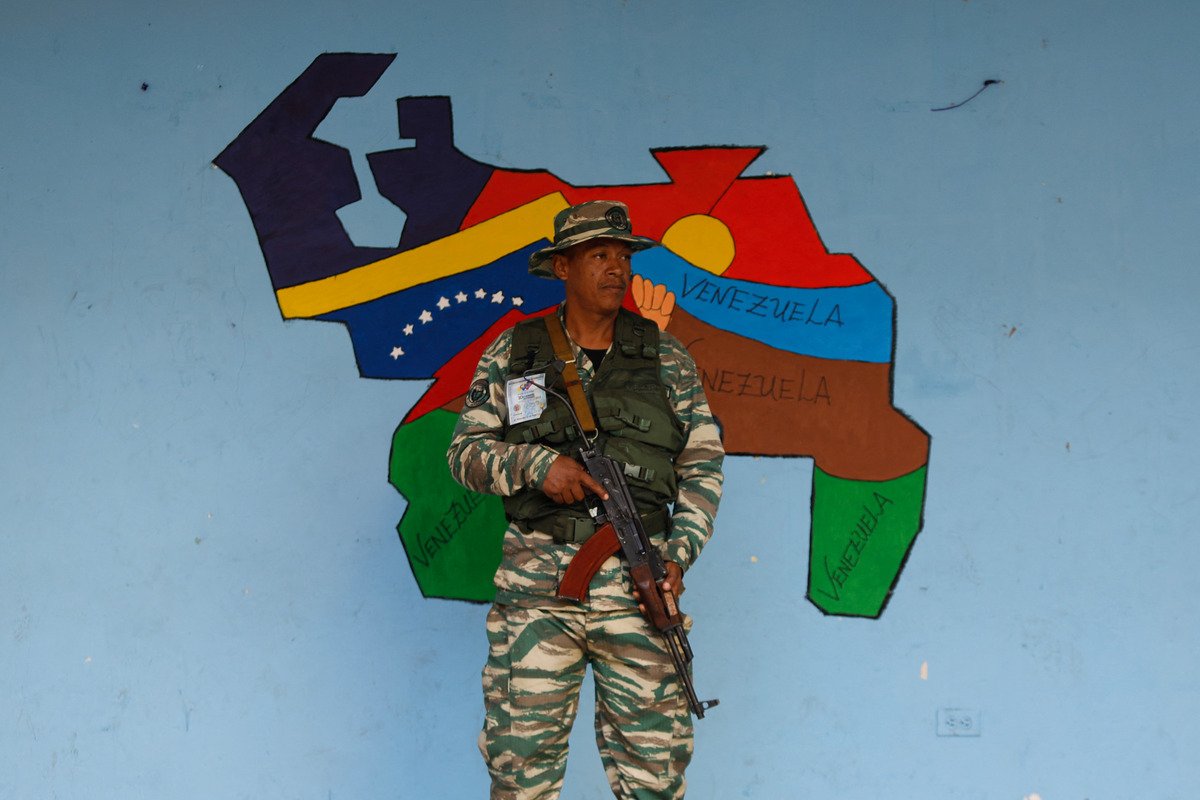Ellie Cook
The U.S. could be heading toward involvement in another global conflict as tensions between Venezuela and neighboring Guyana skyrocket following a controversial referendum that sparked fears of a land grab in South America.
The U.S. military said on Thursday that its Southern Command forces would carry out "flight operations within Guyana" later in the day, and that Washington would "continue its commitment as Guyana's trusted security partner."
On Sunday, voters in Venezuela backed the proposals of Venezuelan leader Nicolás Maduro to claim sovereignty over the contested Essequibo region, which has been a bone of contention between Venezuela and Guyana for more than a century. The resource-rich Essequibo region is controlled by Georgetown, making up more than two-thirds of Guyana's territory.
An 1899 ruling declared Essequibo a part of Guyana, which was then a British colony. A 1966 agreement between the U.K. and Venezuela to resolve the dispute has not stopped the flaring of tensions between the two countries, which intensified after oil and gas giant ExxonMobil said in 2015 it had made a "a significant oil discovery" in the region.
 A member of the Bolivarian Militias stands guard at a polling station during a consultative referendum on Venezuelan sovereignty over the Essequibo region controlled by neighboring Guyana, in Caracas, Venezuela, on December 3, 2023. The U.S. could be shuffling toward involvement in another global conflict as tensions between Venezuela and Guyana skyrocket following a controversial referendum that sparked fears of a land grab in South America.
A member of the Bolivarian Militias stands guard at a polling station during a consultative referendum on Venezuelan sovereignty over the Essequibo region controlled by neighboring Guyana, in Caracas, Venezuela, on December 3, 2023. The U.S. could be shuffling toward involvement in another global conflict as tensions between Venezuela and Guyana skyrocket following a controversial referendum that sparked fears of a land grab in South America.The vote's results were perceived by Guyana as a step toward annexation. And there's precedent for such anxieties, as Russia has held referendums widely believed to be sham votes to try to legitimize claiming swathes of Ukraine.
"We have taken the first steps of a new historical stage to fight for our Guayana Esequiba, for peace and to recover what the liberators left us," Maduro said following the announcing of the referendum's results, referring to the region by its alternative name.
The U.N.'s top court, the International Court of Justice, had said that Caracas should not take any action that could change Guyana's control over the Essequibo region, but it stopped short of blocking Venezuela's vote.
Guyana had asked the court to stop the referendum, suggesting Venezuela could take "unilateral measures to 'resolve' the controversy with Guyana by formally annexing and integrating into Venezuela all of the territory at issue."
Following the vote, Guyanese President Irfaan Ali denounced "a direct threat to Guyana's territorial integrity, sovereignty and political independence." Ali said Georgetown would "intensify precautionary measures to safeguard its territory," adding that he had spoken with the United Nations, global leaders and reached out to the U.S. military.
The Venezuelan government's actions "fly in the face of international law and constitute a grave threat to international peace and security," Ali said in an address to Guyanese citizens on Wednesday.
The language has clear echoes of the U.S. rationale for its involvement in the ongoing wars in the Middle East and eastern Europe, prompting speculation over how far U.S. military backing for international peace and order will extend in the Americas.
The U.S. is currently providing aid, including military backing, to Israel, increasing its support in the wake of the October 7 attacks launched by Palestinian militant group Hamas from the Gaza Strip. Washington has also thrown its weight behind Kyiv following Russia's full-scale invasion of Ukraine in February 2022.
U.S. Secretary of State Antony Blinken spoke with Ali to "reaffirm the United States' unwavering support for Guyana's sovereignty" on Wednesday, the U.S. government said in a statement.
Just before the vote, Guyanese Vice President Bharrat Jagdeo said that "all options are on the table for the defense of our country." Brazil's Defense Ministry had also said it was bolstering its military presence along its northern border with Venezuela and Guyana.
No comments:
Post a Comment